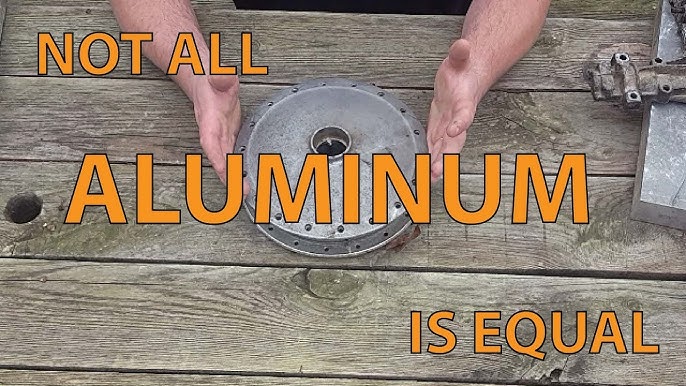The Definitive Guide to Stahl Specialty Company
The Definitive Guide to Stahl Specialty Company
Blog Article
Not known Incorrect Statements About Stahl Specialty Company
Table of ContentsThe 30-Second Trick For Stahl Specialty CompanyExcitement About Stahl Specialty CompanyThe 2-Minute Rule for Stahl Specialty CompanyThe Buzz on Stahl Specialty CompanyStahl Specialty Company - Questions
The subtle difference depends on the chemical content. Chemical Contrast of Cast Light weight aluminum Alloys Silicon promotes castability by reducing the alloy's melting temperature and boosting fluidity throughout spreading. It plays an essential role in permitting complex mold and mildews to be loaded precisely. Furthermore, silicon contributes to the alloy's strength and put on resistance, making it useful in applications where sturdiness is essential, such as automotive components and engine parts.It likewise boosts the machinability of the alloy, making it easier to process into completed products. This way, iron adds to the total workability of light weight aluminum alloys. Copper enhances electrical conductivity, making it beneficial in electric applications. It likewise enhances deterioration resistance and adds to the alloy's general stamina.
Manganese adds to the toughness of aluminum alloys and boosts workability. It is commonly utilized in functioned aluminum items like sheets, extrusions, and accounts. The existence of manganese aids in the alloy's formability and resistance to cracking throughout construction procedures. Magnesium is a lightweight element that provides toughness and influence resistance to aluminum alloys.
It enables the production of lightweight elements with excellent mechanical homes. Zinc boosts the castability of aluminum alloys and aids manage the solidification procedure during casting. It boosts the alloy's strength and solidity. It is often located in applications where complex forms and fine information are essential, such as decorative castings and specific vehicle parts.
Not known Facts About Stahl Specialty Company
Due to the fact that aluminum-silicon alloys have great casting buildings, high gas residential properties, basic procedures, and outstanding corrosion resistance, aluminum-silicon alloys are most frequently utilized in the die-casting market in your home and abroad. At the exact same time, aluminum-silicon alloys are additionally fairly early and commonly recognized alloys established and used in die-casting. After continuous research study and renovation, most of the existing global mainstream aluminum-silicon alloys have been completed and are nothing greater than A356, A360, A380, ADC12, B390, and A413.
The primary thermal conductivity, tensile strength, return strength, and prolongation differ. Select ideal basic materials according to the efficiency of the target product created. Amongst the above alloys, A356 has the highest thermal conductivity, and A380 and ADC12 have the lowest. The tensile limitation is the opposite. A360 has the very best return strength and the highest prolongation price.

Excitement About Stahl Specialty Company
In precision casting, 6063 is appropriate for applications where complex geometries and top quality surface area finishes are critical. Examples include telecommunication enclosures, where the alloy's exceptional formability enables smooth and visually pleasing designs while keeping architectural integrity. In the Illumination Solutions industry, precision-cast 6063 components develop stylish and efficient lighting components that require elaborate forms and good thermal efficiency.
(https://www.anobii.com/en/018095c6db0f515107/profile/activity)
It leads to a finer surface area finish and much better rust resistance in A360. In addition, the A360 shows superior prolongation, making it perfect for facility and thin-walled elements. In precision spreading applications, A360 is fit for sectors such as Customer Electronics, Telecommunication, and Power Devices. Aluminum Casting. Its improved fluidity permits intricate, high-precision elements like smartphone housings and interaction gadget real estates.

In precision spreading, aluminum 413 shines in the Consumer Electronic Devices and Power Equipment sectors. This alloy's superior corrosion resistance makes it an excellent selection for exterior applications, making sure durable, long lasting products in the pointed out industries.
3 Simple Techniques For Stahl Specialty Company
The aluminum alloy you select will considerably influence both the casting procedure and the properties of the last item. Because of this, you need to make your decision meticulously and take an informed technique.
Figuring out one of the most ideal aluminum alloy for your application will certainly indicate considering a wide selection of features. These comparative alloy features comply with the North American Pass Away Casting Organization's standards, and we've divided them into two groups. Foundries in Missouri. The initial group addresses alloy characteristics that impact the manufacturing process. The 2nd covers attributes a knockout post influencing the homes of the last product.
The alloy you choose for die casting straight influences a number of aspects of the casting process, like exactly how very easy the alloy is to collaborate with and if it is susceptible to casting problems. Warm cracking, likewise referred to as solidification splitting, is a common die spreading problem for light weight aluminum alloys that can lead to internal or surface-level tears or fractures.
The 2-Minute Rule for Stahl Specialty Company
Specific aluminum alloys are a lot more vulnerable to warm splitting than others, and your choice should consider this. An additional common flaw found in the die spreading of light weight aluminum is pass away soldering, which is when the actors stays with the die wall surfaces and makes ejection hard. It can harm both the cast and the die, so you need to try to find alloys with high anti-soldering residential properties.
Rust resistance, which is currently a notable quality of light weight aluminum, can vary considerably from alloy to alloy and is a necessary particular to take into consideration depending on the environmental conditions your product will certainly be subjected to. Use resistance is another residential property generally sought in aluminum products and can set apart some alloys.
Report this page